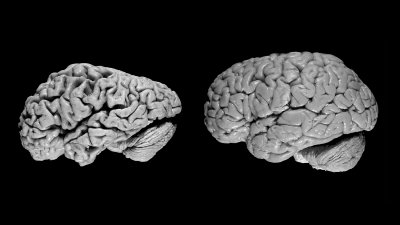University of California San Francisco
Give to UCSF-
-
Drug Wholesalers Drove Fentanyl’s Deadly Rise, Report Concludes
Fentanyl most likely spread because of heroin and prescription pills shortages, and also because it was cheaper for drug wholesalers than heroin.

-
UCSF Researchers: 'Fentanyl Is a Tsunami'; Want Drug Classified As A Poison
-
Measuring Newborns’ Weight Loss With Electronic Health Records to Give Babies a Healthy Start
A new study is using electronic health records to guide management of newborn weight loss.

-
1 in 10 Will Develop Eczema in Their Lifetime
-
What’s So Controversial About the First Gene-Edited Babies? Experts Explain
UCSF experts in gene editing and bioethics weigh in on the news of Chinese researcher He Jiankui’s announcement of the birth of the first babies who had their DNA edited as embryos.

-
UCSF Celebrates 35 Years of HIV/AIDS Care at Ward 86
Thirty-five years after its launch, Ward 86 continues to be a global leader in HIV care and has significantly influenced milestones in treatment and prevention.

-
Flexible Brain Electrodes Open New Frontiers for Neuroscience
Scientists at UCSF have developed an innovative tool to peer into the secret life of brain. They hope to use the device to learn more about how memories form, and how past experiences influence decisions.

-
Ambulance Response Times Are Worse for Low-Income People
A nationwide study of more than 63,000 cases of cardiac arrest found that ambulances on average took nearly four minutes longer to handle calls from low-income areas than high-income communities.

-
Brain Stimulation Relieves Depression Symptoms
Patients with moderate to severe depression reported significant improvements in mood when researchers precisely stimulated a brain region called the orbitofrontal cortex.
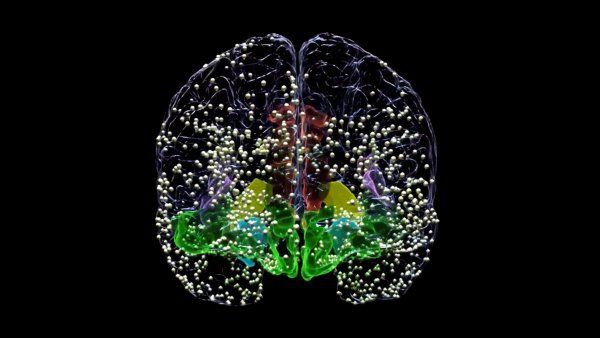
-
Cancer Researchers ID ‘Achilles Heel’ of Drug-Resistant Tumors
UCSF scientists have figured out why some lung cancers become drug-resistant after initially responding to targeted therapies.
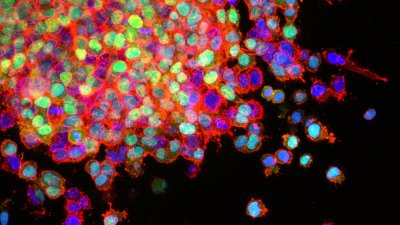
-
A Brain Cancer Patient Becomes a Medical Student
-
Classroom Friendships May Offset Effects of Punitive Parents
Angry, threatening and highly critical parenting is more likely to result in children with defiant, noncompliant and revengeful behavior that spills over to adulthood and impacts relationships with all authority figures.

-
Dementia Study First in a Series on Health Needs and Challenges of LGBTQ Seniors
Nearly 25 percent of the LGBT adults aged 50 and older in a new study had subjective cognitive decline, a potential indicator of a future Alzheimer’s diagnosis.

-
New Method Of Breast Reconstruction May Reduce Pain For Some Cancer Survivors
A UCSF surgeon is among a handful nationwide who are pioneering and studying the outcomes of a new approach to breast reconstruction.

-
No, The Rain Isn't 'Toxic." But Here's What to Do When the Smoke Clears
-
Emotional Abuse May Be Linked with Menopause Misery
UCSF has identified another factor that may add to menopause torment: an emotionally abusive partner or spouse.

-
Are You Sitting Down? Standing Desks Are Overrated
-
Hidden Hunger: The Quest to Provide Healthy Solutions
-
Researchers to Study Drivers of Asthma in Puerto Rico
UC San Francisco, National Jewish Health and Centro de Neumología Pediátrica in Puerto Rico have been awarded nearly $10 million to address the root causes of asthma in children in Puerto Rico.

-
New ‘SLICE’ Tool Can Massively Expand Immune System’s Cancer-Fighting Repertoire
UCSF researchers have devised a CRISPR-based system called SLICE, which will allow scientists to rapidly assess the function of each and every gene in “primary” immune cells.
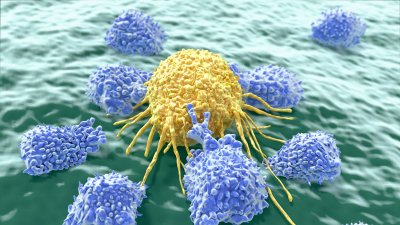
-
UCSF-led Consortium to Receive $3.45 Million from NFL to Study Traumatic Brain Injury
The NFL has awarded more than $3.45 million to a UCSF-led research consortium tasked with identifying the causes, risk factors, biomarkers and prognoses for patients with TBI.

-
Bringing Artificial Limbs to Patients Who Need Them
UCSF researchers are talking to patients about what they want in artificial limbs with the aim of improving and speeding the FDA approval process.

-
Can Video Games Improve the Health of Older Adults with Schizophrenia?
Video games can offer a safe and easy way for a sedentary population to get started with exercise.

-
Saving Limbs and Toes From the Grip of Diabetes With Clinic’s New Approach
The loss of a toe or limb to diabetes is more common than many people realize – and it’s a tragic outcome that UCSF’s Limb Preservation and Diabetic Foot Center is working to prevent.

-
Treating Brain Cancer with Radiation May No Longer Imperil Cognition
Using a mouse model, researchers showed that a drug that temporarily suppresses a key component of the brain’s immune system can prevent radiation-associated cognitive decline.

-
Less Surveillance Needed for Simple Ovarian Cysts
Study found that simple cysts are normal, extremely common and aren’t linked to a higher risk of ovarian cancer. As a result, unless they are symptomatic, simple cysts can be safely ignored.

-
New Software Will Improve Arrival Prediction Times for UCSF Shuttles
After working behind-the-scenes for the past six months to collect more accurate shuttle data, UCSF Transportation Services is reintroducing “Live Shuttle” to help update passengers with real-time estimates on arrivals and departures.

-
Five Winners Chosen in Great People Events Contest
UCSF has selected five winners for a contest that invited ideas for events that would build community and support wellbeing, engagement and inclusion.
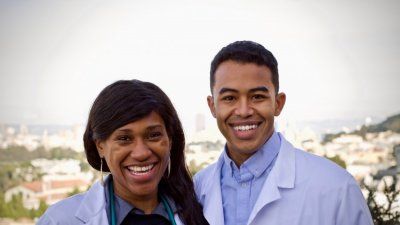
-
Alzheimer’s and Cardiovascular Disease Share Common Genetics in Some Patients
Genetics may predispose some people to both Alzheimer’s disease and high levels of blood lipids such as cholesterol, a common feature of cardiovascular disease.
